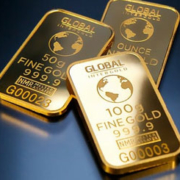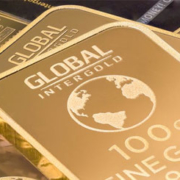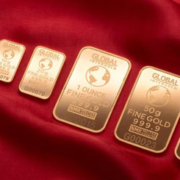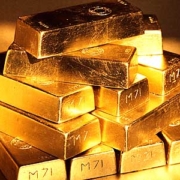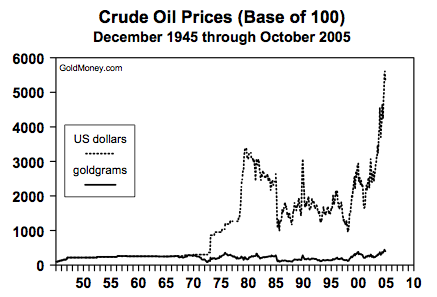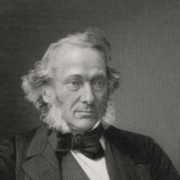Bankers’ Magazine Vol I April-October 1844 – H/T Sean Corrigan
The author of an interesting work published a short time since, entitled “Sir Robert Peel and his Era,” in which a lively sketch is given of the chief peculiarities, external and intellectual, of the leading members of the Houses of Parliament; refers to the assertion sometimes made, that Mr. Cobden is a man of only one idea, in the following terms,—” It is a mistake; Cobden is really a man of great talent, energy, and tact, though, of course, it has been by means of his one idea at the critical time, that he has become in the compass of a year and a half, a noted public character.” Most persons know little of Mr. Cobden, except in connection with the Anti-Corn Law League, and may, therefore, feel some surprise at recognizing him in the character of a financier. But long before the Corn Law League commenced its operations, his very clever pamphlets, “England, Ireland, and America,” and “Russia, by a Manchester Manufacturer,” had shewn him fully capable of appreciating and discussing with ability, any of the intricate questions connected with our monetary system. We purpose in this paper to lay before the reader, his views on the currency, because we think it by no means improbable, that they may have considerable influence, when the subject comes under consideration in Parliament; and, further, because they are the opinions of a practical man of business who speaks to facts. We must beg to be understood as expressing no opinion ourselves, either for or against the views he advocates, by thus drawing attention to them. He gave his evidence before a select committee of the House of Commons in 1840, and it is not a little singular that he only once, and then incidentally, spoke of the Corn Laws, as interfering injuriously with our monetary system.
In order to present, in a concise form, the subjects connected with the theory and practice of Banking, which were referred to in the course of his evidence, we shall arrange them under separate headings, commencing with his own statement of the character of the evidence he proposed to give.
His Opinions—those of a Practical Man.
I am here as a practical man, a merchant and manufacturer, and with a view to the scientific definitions of the terms to be used by bankers, I do not pretend to come here as an authority. It would very much prevent that confusion into which I fell at the close of my last examination, if I should clearly understand the practical bearing of every question, and it is only on practical subjects that I can afford any information. I make this explanation, because I find that in the attempt which I thought due to this Committee, to answer every question put to me on the last occasion, I have given some answers at the close of my examination which have been, by permission of the Committee, struck out, which are so unintelligible to me on reading them, that I think they must be incomprehensible to every living being. I do not understand the questions any more than I understand the answers at this moment, and I wish my examination to be of that practical nature, on which alone I can afford the Committee any information.
Evils produced by Fluctuations in the Currency.
My opinion is, that great evils have arisen to the trade and manufactures of the country from fluctuations in the currency; I believe great evils have been occasioned to the trade and manufactures of the country in 1836 and 1837, and the subsequent period, by fluctuations in the currency; greater evils, pecuniary, social, and moral, than by the direct failures of all the banks of issue since they were first established in this country.
I could adduce a fact derived from my own experience that would illustrate the heavy losses to which manufactures were exposed in their operations, by those fluctuations in the value of money. I am a calico printer; I purchase the cloth, which is my raw material, in the market, and have usually in warehouses three or four months supply of material. I must necessarily proceed in my operations, whatever change there may be, whether a rise or a fall in the market. I employ 600 hands, and those hands must be employed. I have fixed machinery and capital, which must also be kept going, and therefore whatever the prospects of a rise or fall of prices may be, I am constantly obliged to be purchasing the material, and contracting for the material on which I operate. In 1837, I lost by my stock in hand 20,000/., as compared with the stock-taking in 1835, 1836, and 1838; the average of those three years when compared with 1837, shews that I lost 20,000/. by my business in 1837, and what I wish to add is, that the whole of this loss arose from the depreciation in the value of my stock. My business was as prosperous; we stood as high as printers as we did previously; our business since that has been as good, and there was no other cause for the losses I then sustained, but the depreciation of the value of the articles in warehouse in my hands. What I wish particularly to shew is, the defenceless condition in which we manufacturers are placed, and how completely we are at the mercy of these unnatural fluctuations. Although I was aware that the losses were coming, it was impossible I could do otherwise than proceed onward, with the certainty of suffering a loss on the stock; to stop the work of 600 hands, and to fail to supply our customers would have been altogether ruinous; that is a fact drawn from my own experience. I wish to point to another example of a most striking kind, shewing the effect of those fluctuations on merchants. I hold in my hand a list of thirty-six articles which were imported in 1837, by the house of Butterworth and Brookes, of Manchester, a house very well known; Mr. Brookes is now boroughreeve of Manchester. Here is a list of thirty-six articles imported in the year 1837, in the regular way of business, and opposite to each article there is the rate of loss upon it as it arrived, and as it was sold. The average loss is 37 1/2 per cent, on those thirty-six articles, and they were imported from Canton, Trieste, Bombay, Bahia, Alexandria, Lima, and, in fact, all the intermediate places almost. This, I presume, is a fair guide to shew the losses which other merchants incurred on similar articles.
Conduct of the Bank of England.
The great instrument in the hands of the Bank, for effecting its changes in the value of commodities, is by creating a panic; it is a process the most disastrous to the trading community; it is the most profitable to the Bank proprietors; that process was resorted to at the end of 1836, in striking a blow at the American houses, in advancing the rate of interest, and by all those means which are resorted to in the London papers, through its organ’s of the press, for exciting apprehensions in the minds of merchants and traders, that a curtailment of its securities and credit generally was to take place. The Bank ought to have contracted its issues long before, at the commencement of the drain in 1836; there was a previous drain, which was but slightly interrupted, which began as early as 1834; in fact, the Bank appears to have departed from its principle, immediately it had obtained the renewal of its charter, of keeping one-third of its liabilities in gold. If the Bank had kept its securities at an even amount, and retained one-third of its liabilities in bullion, or about that (I do not complain of a million), I feel assured there would have been no panic; there could have been no panic if that had been the policy from the time of its obtaining its charter.
I consider the cause and effect in the contractions and expansions of the currency, and their influences on prices, are not to be measured in periods of six months, or even twelve months; the expansions of the Bank of England in 1835, and indeed its previous course of expansion (for I am of opinion that mischief was generating long before that), had given rise to an immense amount of speculation; and amongst other things, it had set in motion seventy or eighty joint-stock banks; forty-seven joint stock banks were established in 1836; those were in the course of formation at the very time when the Bank of England was, as it appears here, in the course of contraction, but it necessarily must have taken a considerable time to have checked the spirit which had been generated by the previous course of expansion on the part of the Bank of England.
Effects of an over Issue of Paper Money.
The conduct of the Bank, in inflating the currency, produces a rise of prices. The prices of all commodities gradually rise; that begets what is thought prosperity; it is in fact unhealthy excitement; this causes an extension of our commerce and manufactures; it causes an advance of prices abroad, in consequence of the advance in this market, which is the regulator of the prices abroad, and that begets a general system of over-trading. This overtrading inevitably leads in the end to discredit, and panic to a greater or less degree; it was through promoting this train of consequences by originally departing from its rule of keeping steadily to the amount of its securities, and keeping one-third of its liabilities in bullion, that the Bank, in my opinion, caused the over-trading; and the panic of 1836-7, which, I repeat, could not have happened had the Bank been true to its own principle of remaining passive, with the amount of one-third of its liabilities in bullion.
Bank of England can control Issues of Joint Stock Banks.
I believe it to be impossible for private and joint-stock Banks to expand the circulation, provided the Bank of England remained true to the principle it had laid down. We have had no instance of its having been so; even the Scotch Banks cannot inflate the currency, unless the Bank of England have previously set the example; that was the case from 1823 to 1825; the Scotch Banks increased their circulation from, I believe, 3,400,000/. to upwards of four millions and a half, up to the panic of 1825; I think that was about the increase of the circulation in Scotland; but the moment the screw (to use the common term) was placed upon the currency in London, that moment the Scotch Banks were compelled to restrict their issues, and the same operation went on with all the private banks of the kingdom. I have a pretty clear recollection of having seen that statement in Sir Henry Parnell’s work upon Banks. It is impossible to doubt that the Bank, having the entire circulation of the metropolis, having the privilege of a legal tender, its notes being alone receivable by the Government in payment of the revenue, and possessing altogether the prestige which the Bank of England possesses in the public estimation, and backed by the Government, it is impossible that an institution so circumstanced should be otherwise than in a position of absolute power over all other banks in the kingdom. I should not say that the country Banks contract their circulation instantaneously, on finding that the Bank of England is doing so; but the country Banks do what is of as much importance in the way of effecting a correction of the evils of expansion; they curtail their credits, they allow fewer facilities, they call up old debts, and take warning by the example of the Bank of England, to put a general restriction upon the operations of trade; I think it must be known to every one that the slightest movement on the part of the Bank of England, is watched with intense interest by every banker as well as merchant in the kingdom.
What Causes should regulate the Currency.
I hold all idea of regulating the currency to be an absurdity; the very terms of regulating the currency, and managing the currency, I look upon to be an absurdity; the currency should regulate itself; it must be regulated by the trade and commerce of the world; I would neither allow the Bank of England nor any private banks, to have what is called the management of the currency.—Have you not stated that the Bank of England ought to regulate its circulation according to the amount of its bullion? I have stated that that is the principle laid down by the Bank of England, and that that principle has not been conformed to; I have no faith in any man or any body of men ever conforming to any such principles, and, therefore, I remarked I should never contemplate any remedial measure, which left it to the discretion of individuals to regulate the amount of the currency by any principle or standard whatever; but the Bank having laid down that principle, and having obtained its charter in consequence of Mr. Horsley Palmer’s evidence, as to the views and intentions of the Bank Directors, they have departed from that principle, and I make the complaint and charge against them of having violated a principle laid down by themselves.
Upon what principle, in your opinion, ought the circulation of this country to be regulated? If we are to have paper money at all—but in the abstract I should be sorry to commit myself to the principle that there should be any paper money at all—but if we are to have paper money, it must be restricted to that amount which the precious metals would be if they circulated alone. I would not put it into the power of individuals to depart from the principle, as the Bank Directors have done, which they have once laid down; and, therefore, my idea is, that if there be a circulation of paper, the maximum amount of that paper should be settled, and that there should be such an amount as to leave still such an amount of the precious metals circulating, as would allow the operations of the exchanges to work tranquilly upon the precious metals, without ever occasioning any shock to trade or commerce.— The object you would propose is, that the paper currency should vary exactly as the metallic currency would do? I have stated that the maximum of the paper should be settled; and it should be of such amount as would require gold and silver, in addition to such an extent as would meet all the demands for exportation in case of adverse exchanges, which I maintain would never amount, in the course of trade, to any thing at all of magnitude, unless, through the operation of bad laws, such as the present corn law. I wish to be understood that the whole of the currency in circulation should vary precisely as if it were all gold and silver, and that the exchanges should operate upon the bullion,—upon the specie.
Do you mean, by the maximum of the paper, a certain fixed amount to be issued on security, the remainder to be issued against gold, and vary with it? Precisely; I think there would be no harm done, if you issued a certain amount on securities beyond the amount required on bullion.—You do not mean by a maximum that a limit should be fixed, beyond which paper should not go, whatever gold might come in? By a maximum I mean, a maximum amount to be issued on securities, and any thing beyond that, issued on gold, would be represented by the gold.—Do you conceive that that object can be obtained by any regulations of the Banks as now constituted in this country? No, decidedly not.—How would you propose to attain that object? I think the details might be worked out with great ease, so far as the alteration of such a bank goes, inasmuch as it would require only a few men of probity to see that the principles laid down were not violated, and that the bullion of of the Bank was secure.—Would that not, so far as the Bank of England is concerned, be attained, by a strict adherence on their part to the rule of making their paper vary according to their bullion? I should be sorry to trust the Bank of England again, having violated their principle; for I never trust the same parties twice on an affair of such magnitude.—Suppose they were to adhere strictly to their principle, would not the object be obtained? The Committee must excuse my taking a hypothetical case, to give a favourable opinion. I object, moreover, to a national Bank being managed by merchants, those engaged in extensive mercantile transactions. It would be impossible, looking to the Directors of the Bank of England, to impute a want of probity; for we have had abundant proofs that the Bank of England has been conducted by men of strict personal honour; but it is quite clear that such a thing may arise as for such a bank to be under the direction of individuals as merchants, whose personal interests may be in direct hostility to their public duty. I would take, for instance, such a case as merchants having a large amount of produce coming home, previous to a glut, and previous to a panic, when it might become exceedingly important to those gentlemen that they should delay an action of the Bank, which produced a fall in prices, until they had realized on certain shipments. Such a thing is quite possible; but at the same time I should wish to be understood as not imputing any thing of the kind to such a body of men.
Advantages of One Bank of Issue.
Is it your opinion that nothing short of putting down all existing establishments, and establishing a Bank administered by Commissioners, will regulate the currency of the country? I repeat what I stated before, that the affairs of private banks cannot be so far wrong as to effect prices abroad, provided a bank having the power the Bank of England has had hitherto, remains steady to its principle, and, therefore, of course I must also think that a national bank having such a monopoly as the Bank of England has, if conducted on that principle, would prevent any mass of serious evils arising either from our country banks in England, or banks in Ireland and Scotland. All the evils we feel as merchants and manufacturers, arising from the fluctuations in the prices of commodities, originate, I believe, in London, with the Bank of England.—Would it answer the purpose, so far as the Bank of England is concerned, if a separation were made into two parts, the one to manage the currency, on the principle you have laid down, the other to manage the banking department in the same manner as the private Banks, not of issue, are managed? Mr. Loyd’s plan, to which reference is made, would have many advantages over the present system; but it is not a plan I should approve.—What are your objections to it? Mr. Loyd uses the term managing the currency, and regulating the currency, which I consider to be just as possible as the management of the tides, or the regulation of stars, or the winds. I have seen no plan which places the thing wholly beyond the power of a body of men to increase or diminish the quantity of money, which power is as intolerable, as that a body of men should have the power of regulating the length of the yard periodically; and it is as reasonable in the case of merchants who may manage a bank like the Bank of England, as if they should be privileged to sell by the short yard, and buy by the long one. I object entirely to such a bank being in the hands of a body of merchants; I object to any body of men having the power to increase or decrease the quantity’ of money.—Is not that power possessed to a small extent, and for perhaps short periods, by any bank of issue in the country? Not to an extent to influence the prices of commodities throughout the kingdom . I am not prepared to say whether slight perturbations might not arise in particular localities, owing to the indiscretions of individual banks; but no general derangement to the commerce of the country could arise from any such cause, in my opinion, provided an institution, possessing the important privileges of the Bank of England, were administered upon the principle I have pointed out.—Are not those derangements, to whatever extent they go, in direct contradiction to the principle on which, in your opinion, the currency ought to vary? I should consider them so trivial that they could not have any effect beyond the mere moment.—Not even if a great many banks pursued the same course at the same time? No; from the circumstance that I have already referred to, that if prices are raised generally in any particular quarter, commodities, stocks, railway shares, and other securities would flow to that quarter for sale; if they would fetch a higher price there than they would in London, they would be sold there, and a bill demanded on London, or gold demanded to be transmitted to London, and so the thing would be almost instantly corrected.—Do you find the contraction of the Bank of England, even when made, produces so speedy an effect on the circulation of private banks? No, not when made under the circumstances, to which I nave alluded in 1837; but under ordinary circumstances, it would have the power to correct, such as Mr. Samuel Jones Loyd has alluded to; but time must be taken, as a necessary ingredient, in all its operations; a time for expansion must be considered as having been necessary, and time for contraction must be given.
If from any causes a disposition to speculate arose, might not considerable facilities for it be given by the issues of country banks, and considerable derangement in consequence be produced? No; I consider that no great over-trading can take place unless the prices of foreign articles are influenced; that would not be the case under the circumstances to which reference is made; at present, the Bank of England, in its variations, not only effects this market, but it effects all the markets in the world. I happened to be travelling in Turkey and Greece in the spring of 1837, and I saw in the little island of Syra, the Greek merchants there, with their telescopes in their hands, looking out as anxiously for the arrival of a vessel from Trieste, giving an account of the proceedings of the Bank of England, as a merchant on the Exchange at Manchester, would watch for the arrival of the mail, to know what the next step to be taken by the Bank Directors would be; and we know, that in the message of the President of the United States in 1837, and in the Addresses of some of the Governors of the States, New York in particular, the Bank of England was not only mentioned by name, but a considerable space given to the discussion of its policy. The operations of the Bank of England, therefore, can never be compared with the operations of a small country bank, such as have been supposed to effect the changes in the value of commodities; the country bank forms a little instrument for raising up a few more houses in a town, or giving an impulse to a small line of railroad, but it could never influence the prices on staple manufactures, provided the great Central Bank was governed by a principle precisely the same as if we had a metallic currency.
In the case of a central bank administered on the principle you have mentioned, on what footing do you think country banks ought to be placed? I am as much opposed on principle to country banks of issue, as to the Bank of England; I know, in talking of remedial measures such as we wish in Manchester, such as men of business wish, in order to be saved from losses such as we have experienced, we must be practical, and rather look to what is expedient than what is wholly desirable; and, therefore, I confine myself chiefly to the removal of the great grievance, the power of influencing the prices in the hands of the Bank of England; but I should be as glad to see the power withdrawn from every other bank in England, and I believe that is a rapidly increasing opinion on the part of the trading community among whom I am accustomed to mix in Manchester.
Do you conceive it to be an increasing opinion that all power of issue should be confined to one bank, under the management of Commissioners? I believe it is.
Do you contemplate that a bank so constituted should perform any other functions than those of the issue of money? None whatever; to remain wholly passive, and not to dream of regulating the currency.
You do not contemplate its making advances to Government or other parties? Oh no, not at all; there is an end to its usefulness if that illicit intercourse is kept up; there is money raised without the advances of bank notes in America, by means of post notes; and if the Government were in great distress they might borrow, perhaps, upon post notes from merchants, without going to the Bank of England for advances.
Exchequer Bilk.
I have been extensively engaged in business for twenty years, and I never saw an Exchequer Bill in my life; it is a singular fact, that I once mentioned the same thing at our Chamber of Commerce, in the presence of a dozen individuals, all very largely engaged in business, and not one of them had ever seen an Exchequer Bill; there is an immense amount of this paper afloat, but they do not enter into commercial transactions; and the reason they do not enter into commercial transactions is, that they pay interest, and, therefore, it is profitable to the holders to keep them, instead of passing them away.
Bankers’ Magazine Vol I April-October 1844

